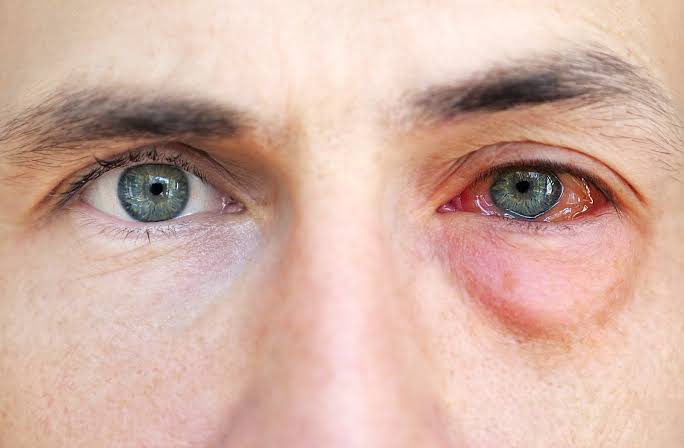As spring arrives, many people look forward to blooming flowers and longer days. However, for allergy sufferers, this season can bring discomfort. Pollen, mold, and other allergens are prevalent, leading to itchy, watery eyes and other symptoms. It’s essential to take care of your eyes during this time, especially if you’ve considered or undergone procedures like LASIK eye surgery in Houston, TX. This article provides practical tips for managing eye health during allergy season.
Understanding Allergies and Their Impact on Eye Health
Allergies occur when your immune system reacts to foreign substances, perceiving them as threats. Common allergens include pollen, dust mites, pet dander, and mold. When these allergens enter your body, they can trigger a cascade of symptoms, including:
● Itchy Eyes: This is one of the most common symptoms, leading to rubbing, which can worsen irritation.
● Redness: Allergens can cause blood vessels in your eyes to dilate, resulting in a red appearance.
● Watery Eyes: The body produces tears to flush out irritants, leading to excessive tearing.
● Swelling: Inflammation can occur, causing eyelids to swell and making your eyes feel heavy.
These symptoms can be particularly bothersome for those who have recently undergone LASIK or are considering the surgery. It’s crucial to understand how to care for your eyes during allergy season to minimize discomfort and maintain your overall eye health.
Tips for Protecting Your Eyes
1. Limit Exposure to Allergens
Reducing exposure to allergens is the first step in protecting your eyes. Here are some strategies to consider:
● Stay Indoors on High-Pollen Days: Pollen counts are usually highest in the morning. Stay indoors during peak times, typically between 5 AM and 10 AM.
● Keep Windows Closed: Use air conditioning in your home and car to filter out allergens. Open windows can allow pollen and dust to enter, worsening your symptoms.
● Use Air Purifiers: Consider investing in HEPA air purifiers to help reduce allergens in your living space.
● Wash Bedding and Clothing Regularly: Frequent washing helps remove dust mites and pollen from your environment.
2. Practice Good Eye Hygiene
Maintaining proper eye hygiene can help alleviate allergy symptoms:
● Wash Your Hands: Before touching your face or eyes, wash your hands to avoid transferring allergens.
● Avoid Rubbing Your Eyes: Rubbing can worsen irritation and may lead to infection. If your eyes are itchy, use a cool compress instead.
● Use Artificial Tears: Over-the-counter lubricating eye drops can help wash away allergens and soothe dry, irritated eyes.
3. Stay Hydrated
Proper hydration plays a vital role in eye health. Drinking plenty of water can help maintain moisture in your eyes and reduce the impact of allergens. Aim for at least eight glasses of water a day, or more if you’re active or live in a dry climate.
4. Consider Allergy Medications
Consult with your healthcare provider about appropriate allergy medications. Antihistamines can help reduce symptoms like itching and redness. Eye drops specifically formulated for allergy relief may also be beneficial. These can reduce inflammation and help keep your eyes comfortable.
5. Wear Protective Eyewear
When you go outdoors, wearing sunglasses can provide a barrier against pollen and other allergens. Choose wraparound styles that fit snugly to reduce the amount of pollen entering from the sides. If you wear contact lenses, consider switching to glasses during allergy season, as lenses can trap allergens against your eyes.
6. Keep Your Environment Clean
Regular cleaning can help minimize allergens in your home. Here are some effective cleaning strategies:
● Vacuum Frequently: Use a vacuum cleaner with a HEPA filter to trap allergens effectively.
● Dust Regularly: Use a damp cloth to dust surfaces, which can help prevent allergens from becoming airborne.
● Wash Floors: Mopping can help reduce dust and allergens on hard surfaces.
7. Schedule Regular Eye Exams
Regular visits to your eye care professional are essential, especially if you experience persistent symptoms. Your doctor can provide personalized advice and check for any underlying conditions that may be exacerbated by allergies. If you’ve had LASIK or are considering it, discuss how allergies could impact your decision.
8. Consider LASIK Surgery
For individuals who suffer from allergies, LASIK eye surgery may provide relief from the need for contact lenses or glasses, which can exacerbate allergic reactions. If you’re considering LASIK eye surgery in Houston, TX, consult with an experienced eye surgeon to discuss your options. They can help determine if you’re a good candidate for the procedure and address any concerns related to allergies.
9. Follow Post-Operative Care Guidelines
If you’ve recently undergone LASIK, follow your surgeon’s post-operative care instructions carefully. This may include using prescribed eye drops, avoiding rubbing your eyes, and attending follow-up appointments. Proper care is crucial to ensure your eyes heal correctly and remain comfortable during allergy season.
10. Monitor Your Symptoms
Keep track of your allergy symptoms throughout the season. If you notice an increase in irritation or discomfort, consider reaching out to your eye care provider. They can provide guidance on how to manage your symptoms and determine if additional treatment is necessary.
Conclusion
Caring for your eyes during allergy season requires a proactive approach. By limiting exposure to allergens, practicing good hygiene, and considering options like LASIK eye surgery in Houston, TX, you can significantly improve your comfort. If you experience persistent or severe symptoms, consult with an eye care professional to explore additional solutions. Taking these steps will help you enjoy the beauty of spring without sacrificing your eye health.







